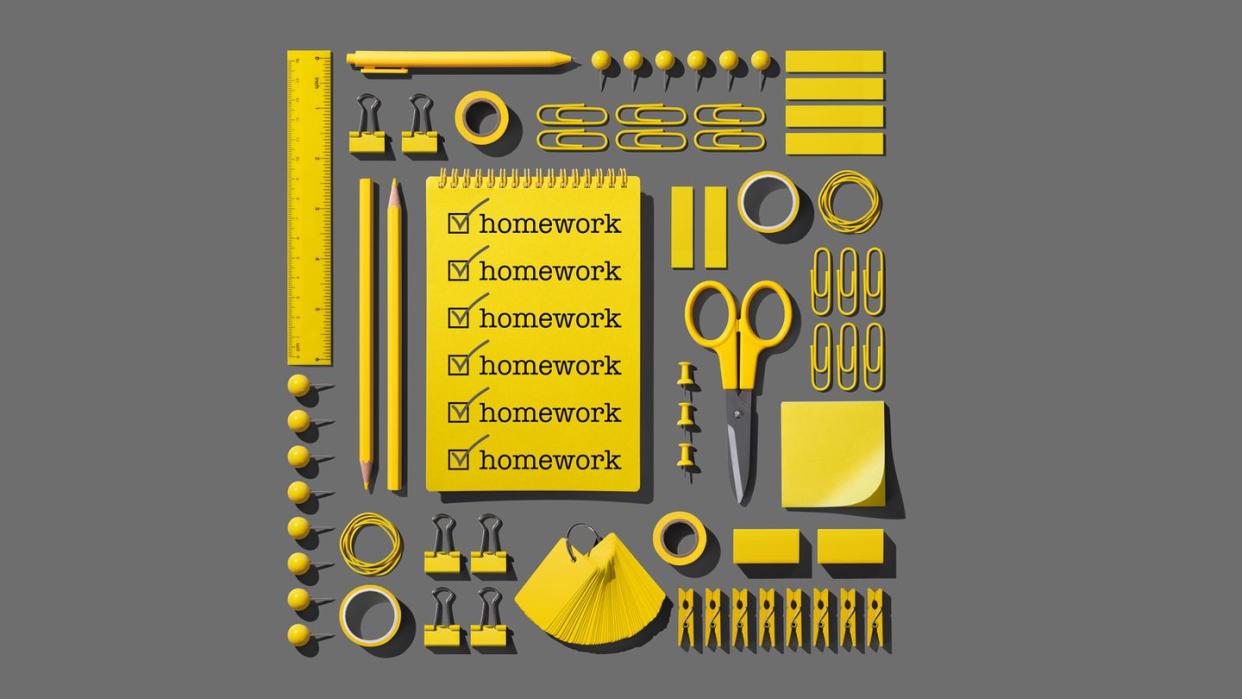Does Your Grade Schooler Need an Executive Function Coach?

During the eight years that Hannah Ross was a third- and fourth-grade teacher, she noticed there were always a handful of kids whose needs weren’t being met in the classroom. Some might have ADHD or dyslexia, but some struggled to complete tasks or remember homework that was due, seemingly, just because. And yet there was no way to really help them. School marched on and those kids were left feeling unsuccessful.
This realization caused Ross to go back to school to study educational therapy, and she is now a sought-out specialist in West Los Angeles, where she works with the types of kids she used to feel for as a teacher. About half of Ross’ clients at Summit Learning have a learning or behavioral diagnosis and require remediation. But the other half are kids as young as elementary school grades who need help with their so-called executive function skills. The term has become a buzz word and refers to traits like organization, memory, task preparation and completion that people of all ages struggle with but that, until recently, not many knew there was a solution of sorts to, least of all parents.
“I think in the past, if there was a student not turning in their assignment or if they failed an assignment, the assumption was, they must be lazy or unmotivated,” Ross said. “Now there’s more of an idea of, like, O.K., what skills are they missing?

“Just in the last five years, there’s been an increase in awareness about executive function skills and about neurodiversity. There’s been a big change in what’s talked about in terms of how kids think and learn differently.”
This, combined with the academic and social fallout from Covid, has caused more parents to seek out Ross. Another factor is also at work: the swelling population of parents who feel there are always more ways to prepare their children for school, life, and, hopefully, a C-suite office in a decade or two. Indeed, some now think about executive function skill-building as a kind of supplemental training for their children, akin to hiring a homework tutor or a personal soccer coach.
“There is that fear from parents—Am I doing enough?,” Ross said. “But some students really do need that extra support.”
For students who don’t have a neuropsych diagnosis but need help with things like remembering homework, planning ahead for tests and reducing anxiety around all of the above, Ross said she may work with them for about six months, seeing them once a week for an hour at a time ($225 an hour for in-office sessions). Children with conditions such as ADHD or dyslexia generally require a longer time-frame.

Meetings with, say, a sixth-grade boy who’s feeling all over the place at school would “help develop goals that a student has buy-in to,” Ross said. “Let’s say a session is assessing their current organizational system—their folder and their Google Drive. And then learning about how to organize things, which is a skill that kids don’t actually really learn. So really teaching a student in practice, O.K., when you’re organizing something you have to have spots for different things to be—a home for different things. And you have to label them. Or you have to set a specific time each week to make sure things go back in their homes… So we start developing that habit and teaching the student, how do you organize your stuff?
“Because a lot of times a student will hear from their teachers or from their parents, ‘Just organize your papers!’ And they don’t actually know what that means.”
Indeed, Ross said that teachers don’t generally train kids how to organize their assignments or their time. “Sometimes you will see a teacher who gives a student a really well-scaffolded assignment, where it’s like, ‘On Monday, you’re going to do this. On Tuesday, you’re going to do this.’ But more often than not it’s like, ‘O.K., you have a book report due in two weeks—finish it.’
“Schools do try to teach kids to use planners, so sometimes that sticks,” she said. “But that’s not always enough in terms of what students need. And honestly, teachers have a lot of pressure with all the things they have to get done. Especially in middle and high school it’s like, who’s job is it” to teach organization? “Because kids go from classroom to classroom, is it the English teacher’s job? Especially as kids get older, at the end of the day, teachers kind of expect that kids know how to do these things.”

As for the breakdown of Ross’ clients, it’s mostly children starting in fourth and fifth-grade, with a greater number in middle school, when academic demands go up, compounded by the organizational challenges of having multiple classes and teachers. She also sees more boys than girls, though she attributes this to that fact that girls are better at “faking” their lack of executive functioning skills.
“A girl more frequently is going to be sitting in class, looking like they’re writing their notes, looking like they’re knowing what they’re doing, even though they might not be attending to the information,” she said. “So they can get missed, honestly.”
Once sessions begin, students generally start to pick up new habits and begin to implement them on their own. Ross, meanwhile, communicates with parents and teachers, and sometimes sends students reminders during the week to make sure they’re staying on task. Still, real results can take time. “Some students will take the strategy and be like, ‘Oh my God! Yes! Now I know how to organize my stuff!’ Great. They might be able to do it on their own,” she said. “Some are going to be more resistant to that change and need a little more accountability and practice for it to really stick.”
You Might Also Like

